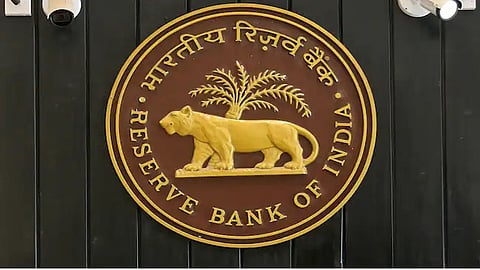

Mumbai | The RBI on Friday retained the GDP growth projection at 7 per cent for 2024-25 fiscal on the back of expectations of a normal monsoon, moderating inflationary pressures, and sustained momentum in manufacturing and services sector.
The headwinds from protracted geopolitical tensions and increasing disruptions in trade routes, however, pose risks to the outlook, Reserve Bank Governor Shaktikanta Das said while unveiling the first bi-monthly monetary policy of the current fiscal.
Going forward, he said the outlook for agriculture and rural activity appears bright, with good rabi wheat crop and improved prospects of kharif crops, due to expected normal south-west monsoon.
"Strengthening of rural demand, improving employment conditions and informal sector activity, moderating inflationary pressures and sustained momentum in manufacturing and services sector should boost private consumption," Das said.
He further said the prospects of investment activity remain bright owing to upturn in the private capex cycle becoming steadily broad-based; persisting and robust government capital expenditure; healthy balance sheets of banks and corporates; rising capacity utilisation; and strengthening business optimism as reflected in RBI's surveys.
"Taking all these factors into consideration, real GDP growth for 2024-25 is projected at 7.0 per cent with Q1 at 7.1 per cent; Q2 at 6.9 per cent; Q3 at 7.0 per cent; and Q4 at 7.0 per cent," the RBI said, adding the risks are evenly balanced.
The governor said that with rural demand catching up, consumption is expected to support economic growth in 2024-25. Also, urban consumption stayed buoyant as evident from various indicators.
Das informed that the total flow of resources to the commercial sector from banks and other sources at Rs 31.2 lakh crore during 2023-24 is significantly higher than that of last year (Rs 26.4 lakh crore).
External demand improved in February with exports registering double-digit expansion. Trade deficit, however, widened in February as imports also accelerated.
On global growth, the governor said the global economy has remained resilient with a stable outlook as reflected in various high frequency indicators. Global trade is expected to grow faster in 2024, although weaker than its historical average.
Inflation is moving closer to targets, but the last mile of disinflation is turning out to be challenging, the governor added.
He also said worsening debt situation in advanced economies (AEs) can generate spill-overs for emerging market economies (EMEs) in the form of swings in capital flows and volatility in financial markets.